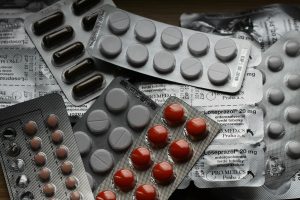Dehydration occurs when the body loses more fluid than it takes in, leading to an imbalance in electrolytes and impairing bodily functions. Understanding the signs of dehydration, recognizing its risks, and adopting effective hydration strategies are essential for maintaining overall health and well-being.
Signs and Symptoms of Dehydration:
- Thirst: Feeling thirsty is one of the first signs of dehydration. By the time you feel thirsty, you may already be mildly dehydrated.
- Dry Mouth and Lips: Dryness in the mouth and lips is a common symptom of dehydration, indicating insufficient saliva production.
- Dark Urine: Urine that is dark yellow or amber in color suggests dehydration. Inadequate fluid intake can lead to concentrated urine.
- Fatigue and Weakness: Dehydration can cause feelings of fatigue, weakness, and lethargy due to decreased blood volume and oxygen delivery to cells.
- Dizziness and Lightheadedness: Reduced blood flow to the brain as a result of dehydration can lead to feelings of dizziness and lightheadedness.
Risks of Dehydration:
- Heat-related Illnesses: Dehydration increases the risk of heat exhaustion and heatstroke, especially during hot weather or strenuous physical activity.
- Impaired Physical Performance: Even mild dehydration can impair physical performance, endurance, and cognitive function.
- Kidney Stones: Chronic dehydration can lead to the formation of kidney stones due to increased concentration of minerals in the urine.
- Electrolyte Imbalance: Prolonged dehydration can disrupt electrolyte balance, leading to muscle cramps, irregular heart rhythm, and other complications.
Effective Hydration Strategies:
- Drink Plenty of Fluids: Aim to drink water regularly throughout the day, especially when engaging in physical activity or spending time in hot environments.
- Monitor Urine Color: Pay attention to the color of your urine. Clear or light yellow urine indicates adequate hydration, while dark urine suggests dehydration.
- Eat Hydrating Foods: Incorporate hydrating foods with high water content into your diet, such as fruits (e.g., watermelon, cucumber) and vegetables.
- Avoid Excessive Caffeine and Alcohol: Limit consumption of caffeinated and alcoholic beverages, as they can contribute to dehydration.
- Use Oral Rehydration Solutions: In cases of severe dehydration, especially due to illness or strenuous activity, oral rehydration solutions containing electrolytes can help replenish lost fluids and minerals.
When to Seek Medical Attention:
If symptoms of dehydration persist or worsen despite efforts to rehydrate, seek medical attention promptly. Severe dehydration requires immediate medical treatment, including intravenous fluid therapy.
At IGAKU, we understand the importance of hydration for overall health and well-being. Book a consultation with IGAKU today to receive personalized guidance on hydration strategies tailored to your needs.
Read our other articles here.





